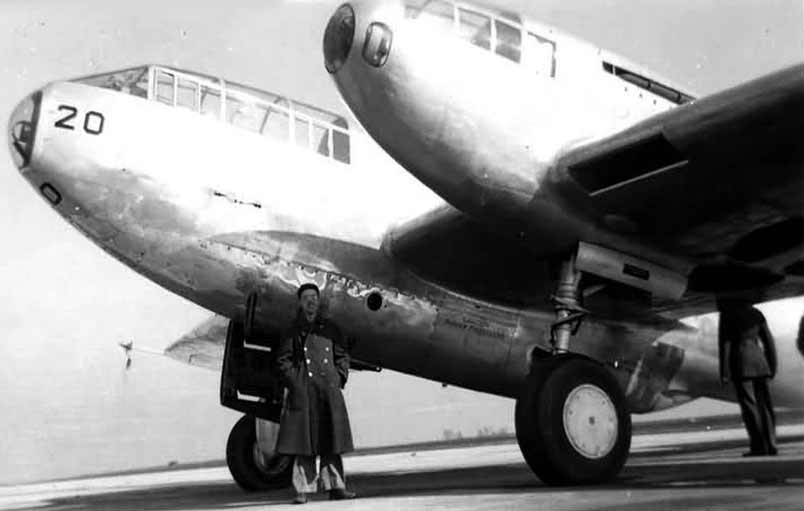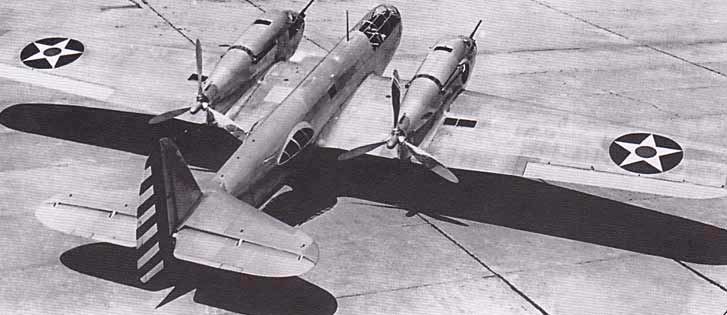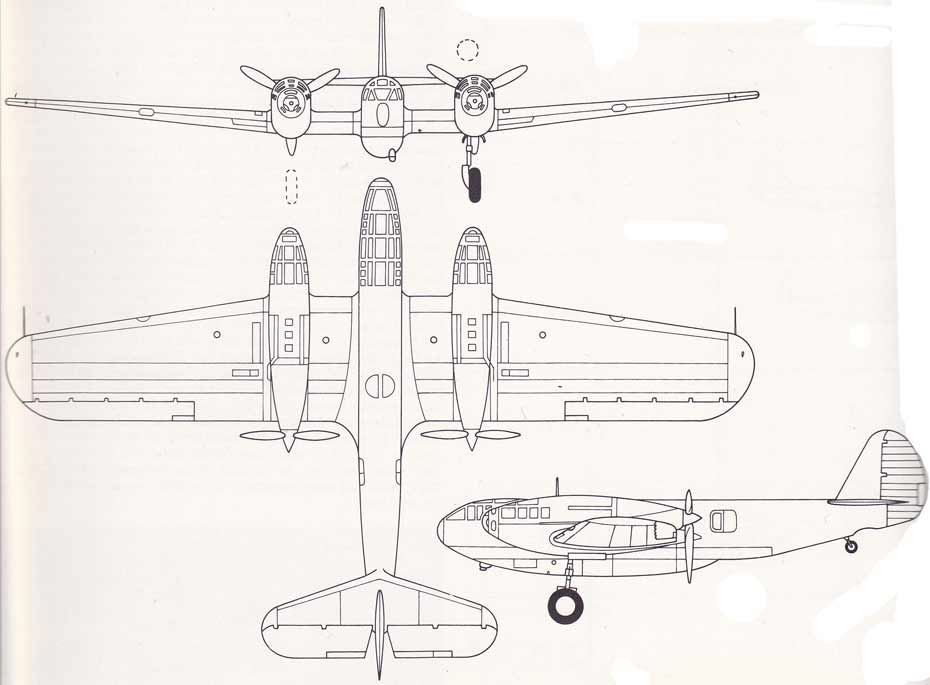Bell FM Airacuda
The United States Bell FM Airacuda was the first military aircraft produced by the Bell Aircraft Corporation. Originally called the "Bell Model 1," the Airacuda first flew on the first of September 1937. The Airacuda was characterized with brazen design advances and huge flaws that eventually led to the discontinuation of the aircraft.
The Airacuda was supposed to be Bell's "bomber destroyer" aircraft. Even though the Airacuda did see production, and a single fully operational squadron was created, only one prototype and twelve production models were built in the end.
The Bell FM Airacuda was designed as an interceptor (bomber destroyer) by Bob Woods. Each Bell FM Airacuda cost $219,000 with a program cost of $3.6 million. With a first flight on September 1, 1937 and an introduction to the field on February 23, 1940 the Bell FM Airacuda was retired in 1942. Bell Aircraft created the FM Airacuda in a strong effort to break into the aviation business. With the FM Airacuda Bell had an idea for a long range bomber interceptor. One fully operational Airacuda squadron was created, and flew from 1938 until 1940. Funds were gathered, but never spent, for the acquirement of another group of Airacudas. Major design flaws and a problematic operational history gave the aircraft a reputation for being a "hangar queen." Near the end of its run, the FM Airacuda was primarily used for photograph opportunities; always being accompanied by a chase plane for safety. Later the Airacudas were dispersed to various airfields so that pilots could fly the strange aircraft and add it to their log books. The FM Airacuda was displayed at the 
1940 World's Fair in New York. With few pilots interested in flying the strange aircraft, the Airacuda saw limited flight. Although there were plans to modify the Airacuda's airframe and installing more powerful engines the FM Airacuda was removed from inventory despite the fears of bomber attacks which the Airacuda was designed to prevent.
"Flying the Bell Airacuda was a new experience for me, since it was the first pusher aircraft I'd ever flown. Its handling characteristics were foreign to anything I had ever had my hands on. Under power it was unstable in pitch, but stable with power off. While flying straight and level, if a correction in pitch was required, a forward push on the control resulted in the airplane wanting to pitch over even more. Pitch control became a matter of continually jockeying the controls, however slightly, even when the aircraft was in proper trim. The same applied if pulling back on the control. It would tend to continue pitching up, requiring an immediate corrective response. The same happened in a turn with power off, the Bell became stable in pitch. This was fortunate because during approach and landing, it was very stable, and a nice flying airplane." - Test pilot Erik Shilling
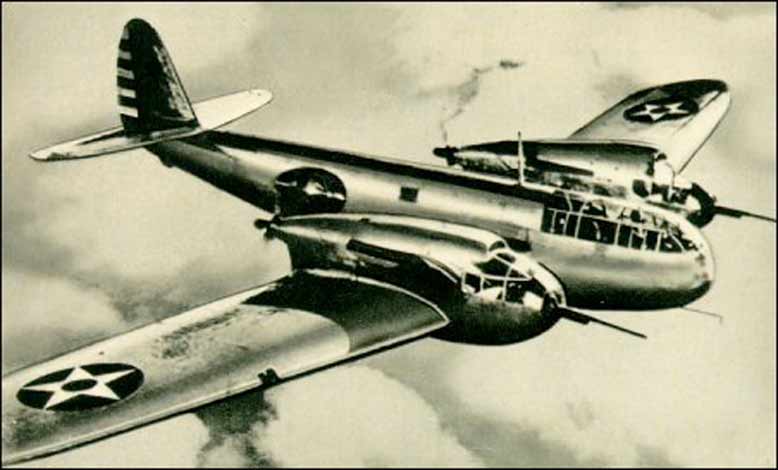
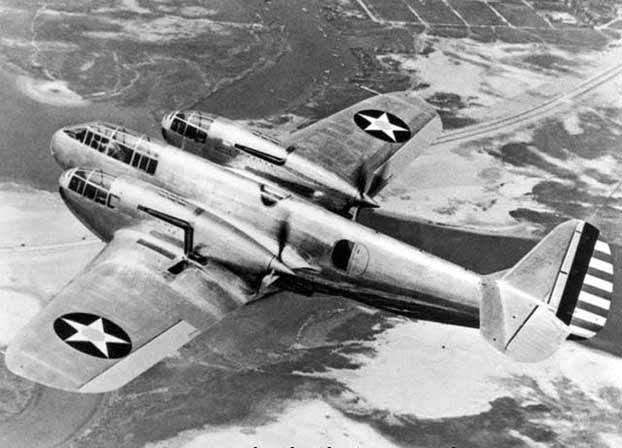 The Bell FM Airacuda was a twin-engine long range escort fighter which could also be used as an interceptor and light bomber. |
|
|
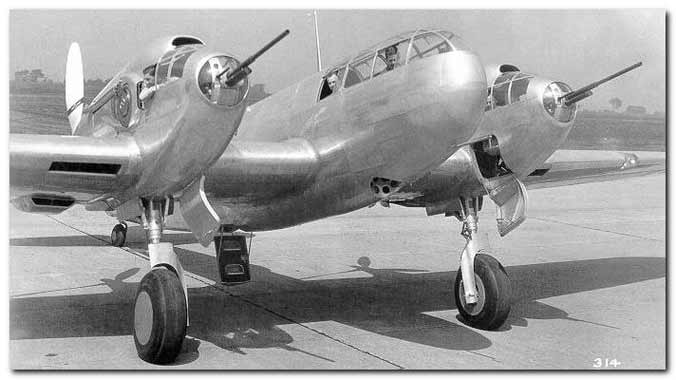 Bell's FM Airacuda was slower and less maneuverable than the bombers it was supposed to protect, leaving it useless as an escort fighter. |
.jpg) During World War II the FM Airacudas had all been relegated to Class 26 for use as non-flying training equipment. |
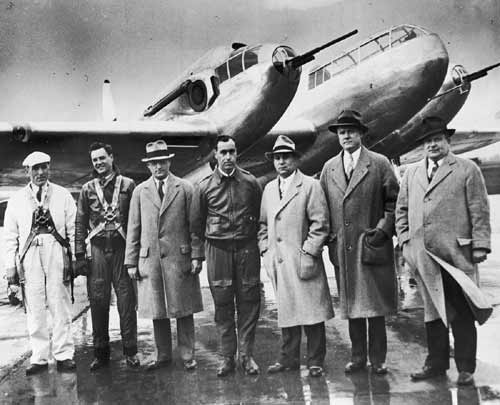 Bell Aircraft Corporation executives and FM-1 Airacuda bomber-killer crew, late 1930's |
|
|
|
|


